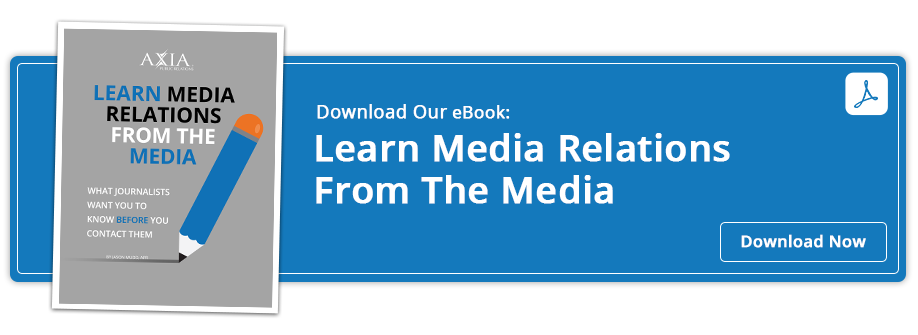When pitching, find the balance between consistent and irritating to appeal to busy reporters.
 You probably know just how bothersome spam or sales calls can be in and outside of the workday. The frustration you feel receiving these calls is comparable to how a news reporter may feel receiving pitches that don’t always pertain to their beat, for example.
You probably know just how bothersome spam or sales calls can be in and outside of the workday. The frustration you feel receiving these calls is comparable to how a news reporter may feel receiving pitches that don’t always pertain to their beat, for example.
As a company desiring news coverage, what are you to do? Your company needs to build relationships with the right reporters and be helpful instead of irritating or spammy. Here are six tips to help ensure reporters don’t hate your company.
Audio: Listen to this article.
1. Do your homework.
Know what outlets fit your needs. Then, be sure to know which reporters would cover your company’s beat or the beat that fits what you’re pitching. You may normally only contact the business reporter, but pitching about a donation from your company may mean you need to reach out to the nonprofit reporter. This research also includes knowing the market. The market in Atlanta is completely different from the market in Dayton, Ohio, and in shrinking newsrooms, one reporter may cover multiple beats.
2. Keep your pitch short.
Reporters are busy. They receive a lot of content and ideas from different people and companies, which means they don’t have the time or desire to read lengthy pitches. However, your pitch does matter to reporters. Try to keep your initial pitch to one paragraph. You can follow up with more information and details.
3. Balance the timing of your follow-ups.
You have to have some balance in your initial outreach and follow-up. Don’t send a pitch and then follow up later that day or even the next day — you should give a minimum of 24 hours before following up, unless your pitch deals with breaking news. Give a little breathing room and find that balance that’s helpful and yet not annoying. You don’t know what news stories the reporter is currently working on. If your outreach is timely, consider calling them before sending an email.
4, Have one person do the outreach
Remember, your media contacts are busy. They need one main contact to connect with. Don’t have three people from your company contact them or follow up about the news you’re sharing. Know who is going to own the outreach and trust them to do their job.
5. Offer an expert source.
When an opportunity arises, be a resource to the media. Think of what your company specializes in and how your executives (or company spokesperson) can be an expert source for the media. Say you’re a mortgage lender and interest rates increase. Offer a few tips and available times to schedule a more in-depth interview. Building this type of relationship can give the reporter a go-to person to turn to when breaking news happens.
6. Avoid embargos.
When a company wants to embargo news, they give information to a reporter/news outlet (often only one) before it is released publicly, and the reporter agrees to not publish the news before a certain date. While an embargo sounds great for certain kinds of news, it can actually backfire on your company because you may end up waiting around for the reporter to respond to your outreach (another reason you should build a relationship with a reporter). Thus, you may reach out to another outlet and then find yourself in a conundrum, or if you aren’t prepared for the embargo, it can frustrate the reporter.
Your company relies on reporters to share your story, and it’s important to make sure reporters don’t hate your company. There’s a fine line between being irritating and helpful to reporters. Following these six steps will help your company be more successful and build relationships with reporters. For more information about how we can elevate your PR strategy, contact us today or book a one-on-one consultation.
Photo by Andrea Piacquadio
Topics: media relations, earned media, news media


Comment on This Article